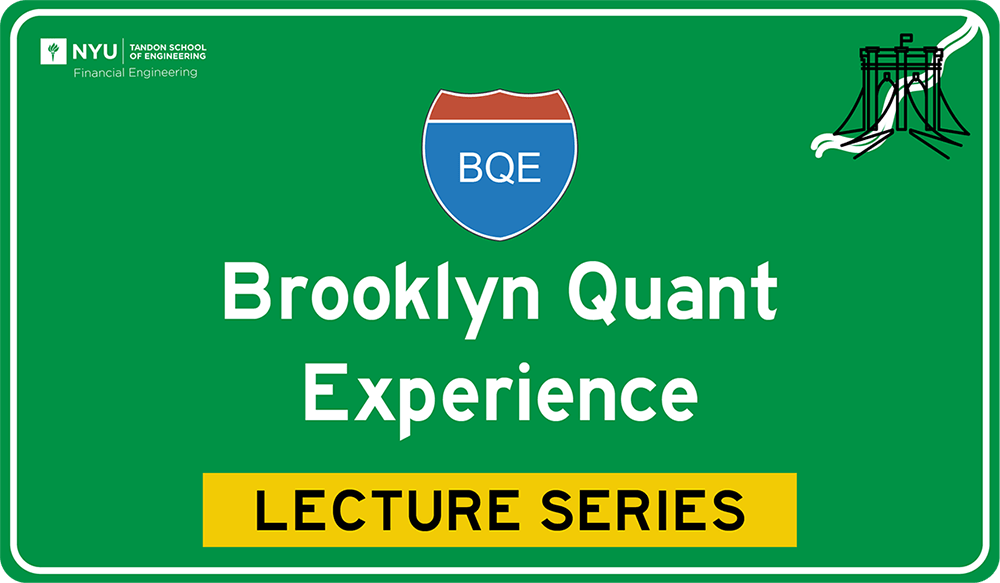
- This event has passed.
Brooklyn Quant Experience Lecture Series: Leon Tatevossian
April 21, 2022 @ 6:00 pm - 7:00 pm UTC+0

Join us for the Brooklyn Quant Experience (BQE) Lecture Series today, Thursday, April 21st at 6 pm ET on Zoom.
“Risk and Reward in the Fixed-Income Market: Where are We Now?”
This is joint work with Andrew Brenner, senior partner and head of international fixed income at NatAlliance Securities LLC .
Leon Tatevossian
Adjunct Professor
Department of Finance and Risk Engineering
NYU Tandon School of Engineering

*Please note a meeting password is required for this event.
Meeting ID: 975 0103 9278
Passcode: BQELT421
Abstract
Dislocations caused by the pandemic extended across all parts of the economy (corporate, consumer, and the public sector) and the capital markets. In response aggressive fiscal intervention was implemented, beginning with the $2.2 trillion CARES Act (signed by President Trump in March 2020) and President Biden’s $1.9 trillion American Rescue Plan (signed in March 2021). Steps taken on the monetary front included the Fed’s multifaceted bond-buying and liquidity programs. This combination of spending and liquidity actions to: [1] underpin the consumer, business, and corporate sectors; and [2] stabilize financial-asset valuations, was unprecedented in its size.
Economic developments getting the most attention now by the rates Markets are the dramatic increase in inflation and expectations of the reversal of monetary accommodation (which will include the sell-down of the Fed’s $9 trillion Treasury and agency mortgage bond portfolio).
This seminar talk (in a question-and-answer form with supporting slides) will explain some of the basic valuation parameters in the fixed-income markets, how these metrics got upended by the swift arrival of the pandemic, and how market sentiment evolved as the Treasury and Fed actions worked through the system.
Of particular interest: How reliably have the “usual suspects” guided the valuation of “risk assets,” “structure,” and “credit”? The investment performance of these sectors has always exhibited connections to the “real economy” (consumer and business) and to the decision-making and risk appetites of institutional investors. Which valuation relationships and economic metrics do we interrogate for a clear perspective on where we’ve been … and where we might be headed?
Bio
Leon Tatevossian is an adjunct instructor in quantitative finance in the Finance and Risk Engineering Dept. and at the Courant Institute of Mathematical Sciences. From 2009-to 16 he was a director in Group Risk Management at RBC Capital Markets, LLC where he focused on securitized-products market risk in secondary trading, origination, and proprietary-trading areas. Leon has twenty-eight years of experience in the fixed-income capital markets (trader, quantitative strategist, derivatives modeler, and market-risk analyst), with a product background covering US Treasury securities, US agency securities, interest-rate derivatives, mortgage-backed securities, asset-backed securities, and credit derivatives. Prior to RBC, he worked at several large sell-side firms (Banc of America Securities, Goldman Sachs, Citicorp Securities, and Morgan Stanley).
Leon graduated from MIT (SB; mathematics) and was a Ph.D. student in mathematics at Brown University. He has also taught courses in quantitative finance at Columbia University (Department of Industrial Engineering and Operations Research) and at Baruch College–The City University of New York (Department of Mathematics).
